Workshop III
The third Humanities-Workshop was hosted by the senegalese Institut d’Études Avancées (IEA) and took place in the premises of Centre de Recherche et de Documentation du Sénégal (CRDS), in Saint-Louis, Senegal. Our host Babacar Fall is director of the IEA and also teaches at the "Faculté des sciences et technologies de l’éducation et de la formation (FASTEF), at the Université Cheikh Anta Diop, in Dakar. Participants were the Humanities fellows, Dr. Wielandt from the VW Foundation, Prof. Gilbert Pwiti from the University of Zimbabwe, Prof. Brigitte Reinwald and Rahel Kühne-Thies from the coordination team and of course, local participants from CRDS and IEA. Among them several scholars who kindly agreed to honour our meeting with their presence and their advice, as commentators and participants in discussions: Ms Fatima Fall, Director of the CRDS, historian Professor emeritus Boubacar Barry, who was affiliated with the university Cheikh Anta Diop in Dakar, and Ms Maty Ndiaye Sy (IEA). Since all Humanities-Fellows are rather anglophone this was an excellent opportunity to get in touch with some francophone academics.
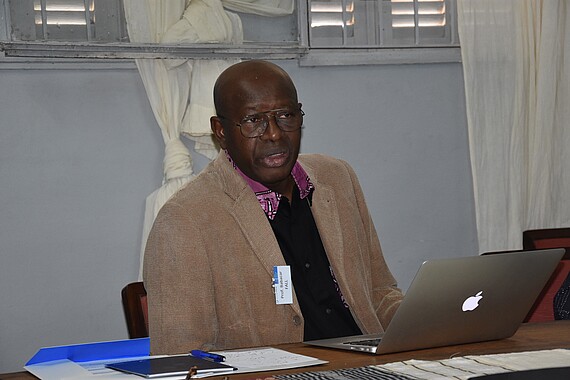
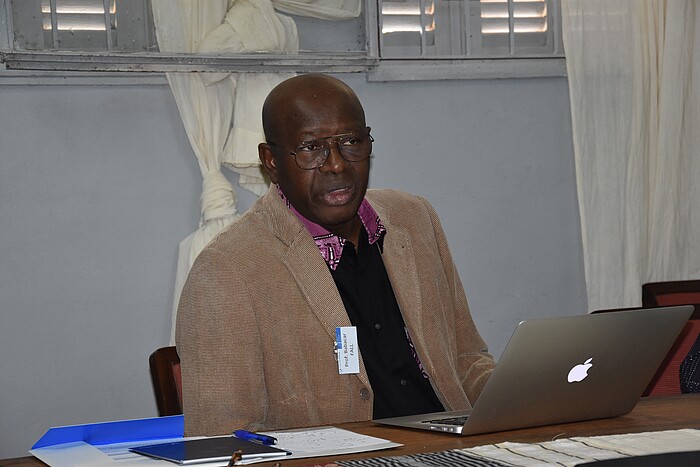
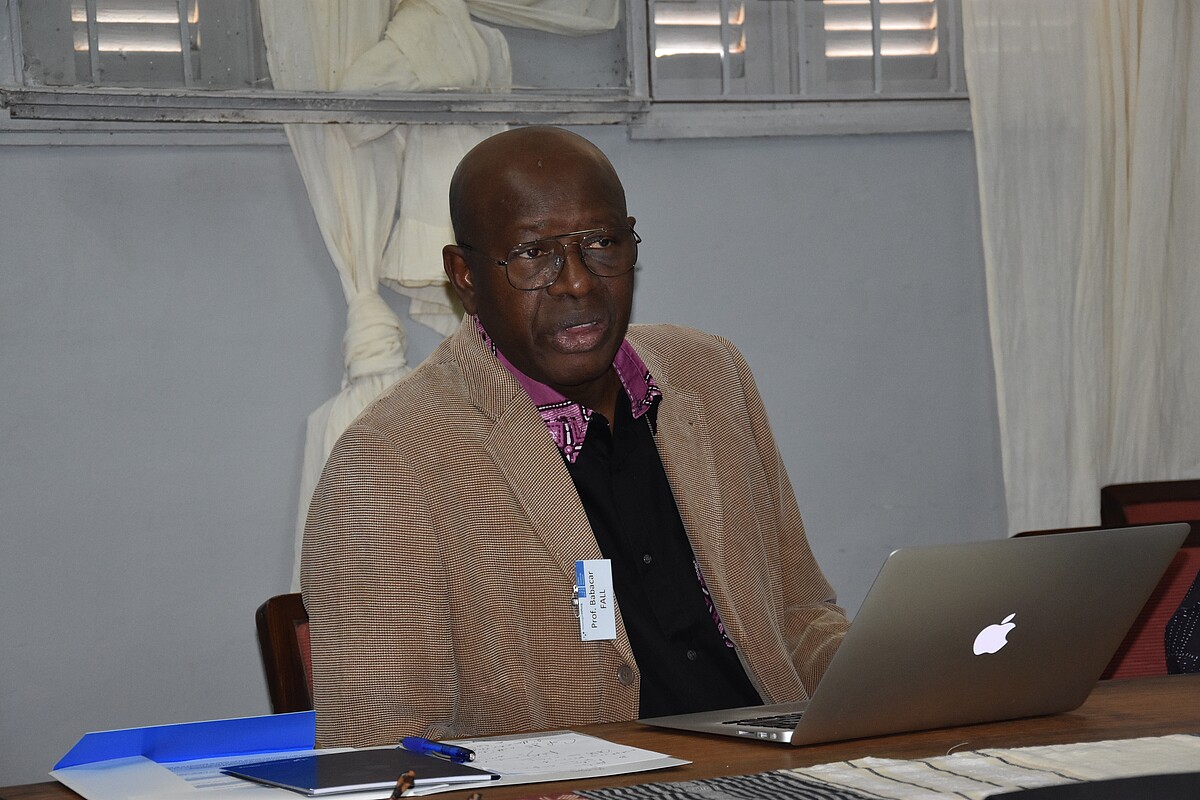 ©
RKT 2019
©
RKT 2019
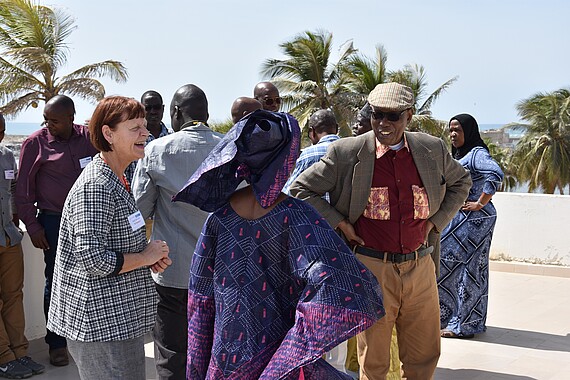

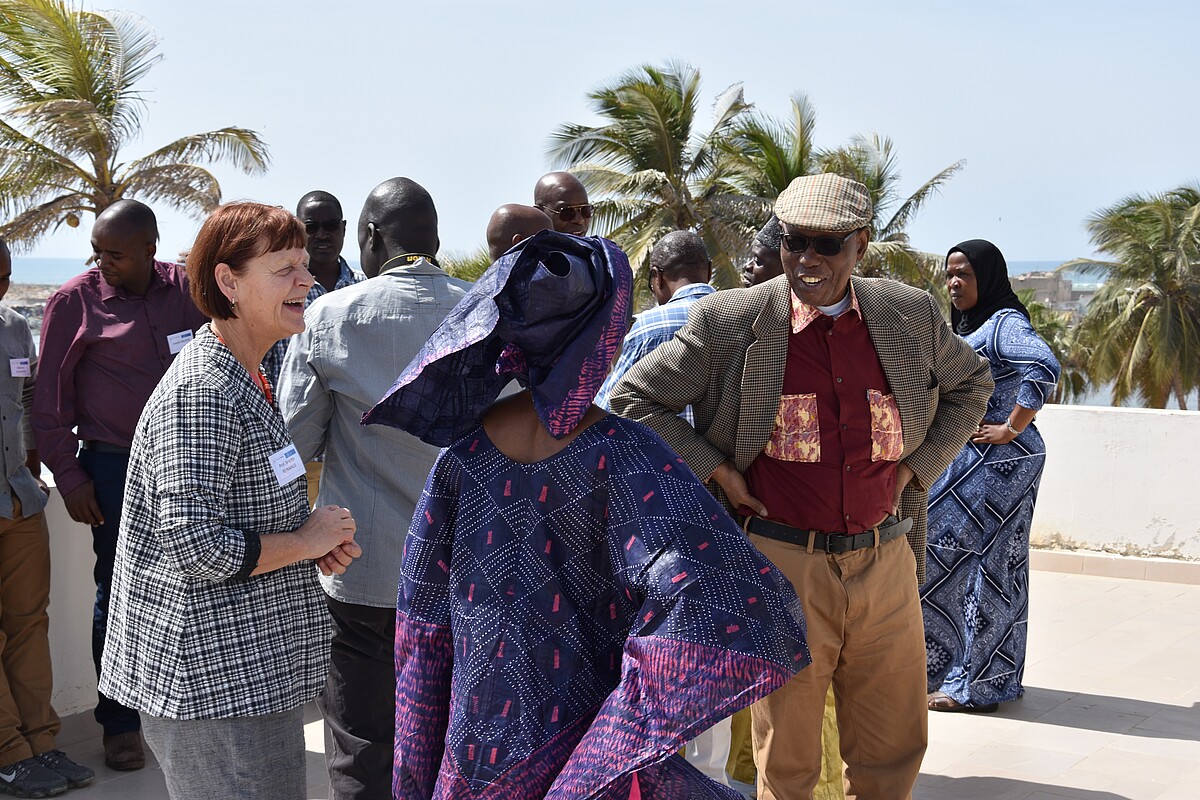 ©
RKT 2019
©
RKT 2019
Presentation Panel
The workshop's main part was organized like a conference, where papers were to be presented before the audience. Content-wise, the papers were discussed with the plenum and got feedback and comments from senior scholars. Form-wise, the presentations were evaluated by coach Birgit Carstensen who gave individual feedback and training units on presenting in the later coaching part of the workshop.
Dr Obvious KATSAURA from Wits University, Johannesburg, South Africa presented on “Pentecostal Dominionism and the Reconstitution of African Urbanities“. This was commented on by Halkano Wario.
Dr Halkano Abdi WARIO from Egerton University in Kenya showcased “Towards a Theory of Counter-Jihad: Comparative Analysis of Counter-Narrative Production in Contemporary Muslim World.” He got feedback from a scholar of religious studies from UGB.
Dr Meron ERESSO (Rift Valley University, Addis Ababa, Ethiopia) presented “The intricacy of social class of migrants: discussing heterogeneity and Social Mobility of female migrants.” Prof. Brigitte Reinwald gave academic feedback and comments on the paper.
Dr Edwinus LYAYA (University of Dar es Salaam, Tanzania) showcased his Paper “Pre-Industrial Iron and Steel Production in Chongwe, Lusaka, Zambia: The technology of Multiple Smelting Furnaces per Termite Mound.” This was commented on by Prof. Dr Gilbert PWITI (University of Zimbabwe, Harare, Zimbabwe).
Dr Pastory BUSHOZI, also University of Dar es Salaam, Tansania presented on ”Stone beads in the Middle Stone Age (MSA) assemblage at Mumba rock-shelter in northern Tanzania.” Prof. Innocent PIKIRAYI (University of Pretoria, Südafrika), who unfortunately could not partcipate in this workshop, was so generous to read this paper and hand in a written comment, so that Dr. Bushozi nevertheless got academic feedback and advice for his upcoming publication.
Dr Joseph MUJERE (University of Zimbabwe, Harare, Zimbabwe) did a presentation on “The making and remaking of platinum mining labour recruitment regimes in South Africa, c.1994-2018,” and the paper was commented on by Prof Babacar Fall (IEA).
Dr Plan SHENJERE-NYABEZI (as well from University of Zimbabwe, Harare, Zimbabwe) showed her work on “Domestic architecture of the Zimbabwe culture: Revelations and reflections from North-western Zimbabwe.” She had feedback by Prof. Gilbert PWITI (University of Zimbabwe, Harare, Zimbabwe).
Dr Saudah NAMYALO (Makerere University, Kampala, Uganda) presented “The typology and function of locative enclitics in Ruruuli-Lunyara.”Unfortunately, her commentator could not participate in the workshop due to a serious illness.
Dr Elinaza MJEMA from University of Dar es Salaam, Tanzania presented his "Embracing Indigeneity: Negotiating Early Colonial Entanglements in East African coast from 6th to 19th centuries AD" and also received a written comment by Prof. Innocent PIKIRAYI (University of Pretoria, South Africa.


 ©
RKT 2019
©
RKT 2019
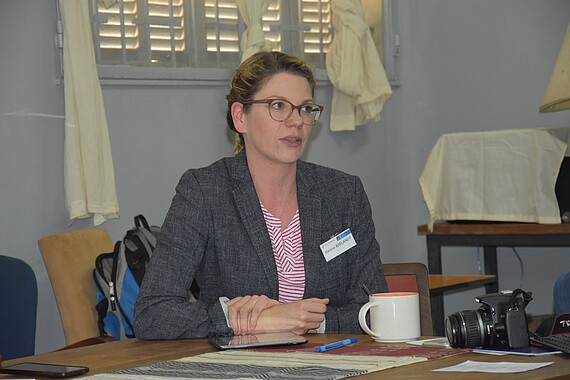
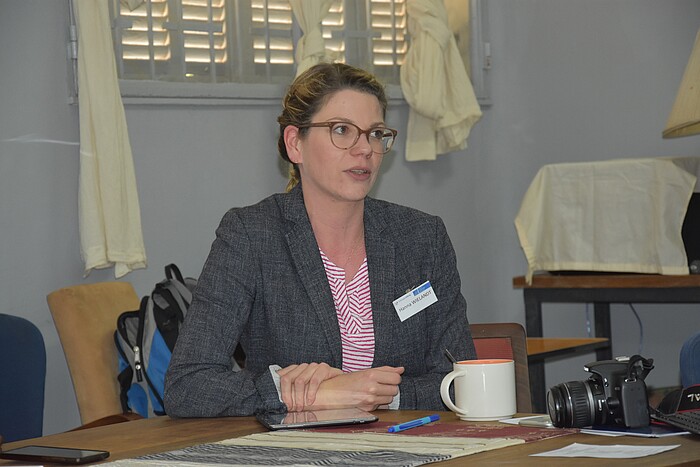
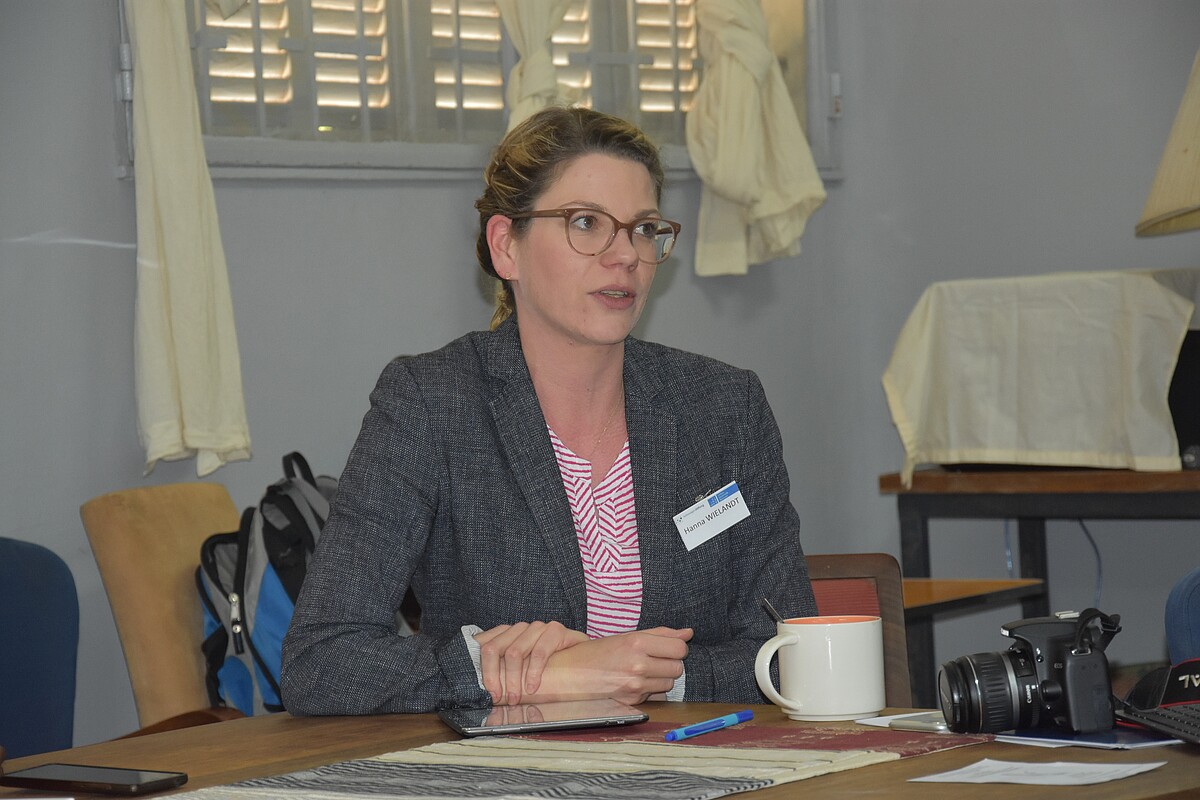 ©
RKT 2019
©
RKT 2019
Round Table Discussion and Coaching
This Workshop's Round Table Discussion had the motto
"Challenges and Potentialities for Postdoctoral Scholars in the Humanities in African Universities."
It was organized in two parts. The first part was based on the needs of the fellows and generated questions for the following second part, addressing the more advanced generation of scholars. With "Balancing different academic tasks: Concerns and constraints for young scholars in the Humanities", Dr. Saudah Namyalo navigated the discussants through viewpoints on gender, hierarchies and work overload. Dr Meron Eresso, Dr Halkano Wario and Dr Elinaza Mjema showed where young scholars' strive for progress struggles with personal, structural and institutional constraints. Exploring these was a first step, finding general features of those constraints in so many academic institutions all over the continent another.
Dr Joseph Mujere chaired the second part of the discussion called "How to deal with challenges. Shared solutions by experienced scholars", where Prof Gilbert Pwiti, Prof. Babacar Fall, Prof. Boubacar Barry, Maty Ndiaye Sy and Prof. Brigitte Reinwald addressed the fellows' questions and shared their experience from international and academically widely varying perspectives.
Coach Birgit Carstensen conducted training units about "The Academic and the Personal. Individual Focus in Presentation Coaching".
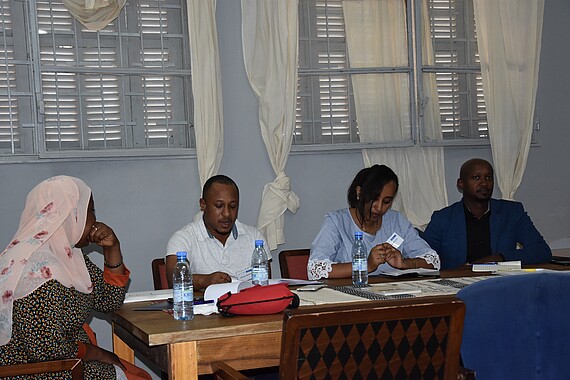
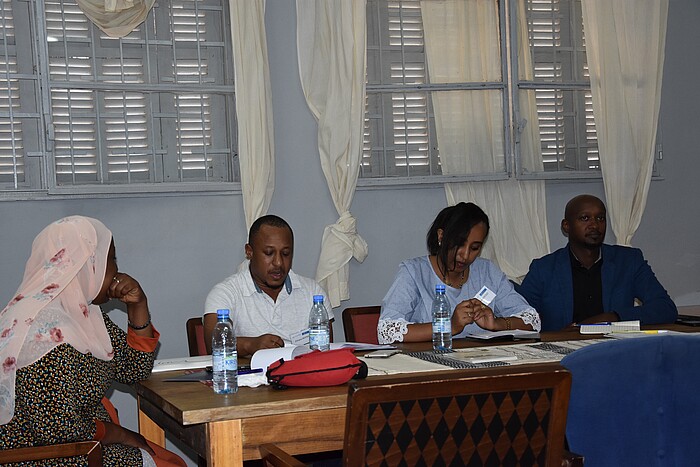
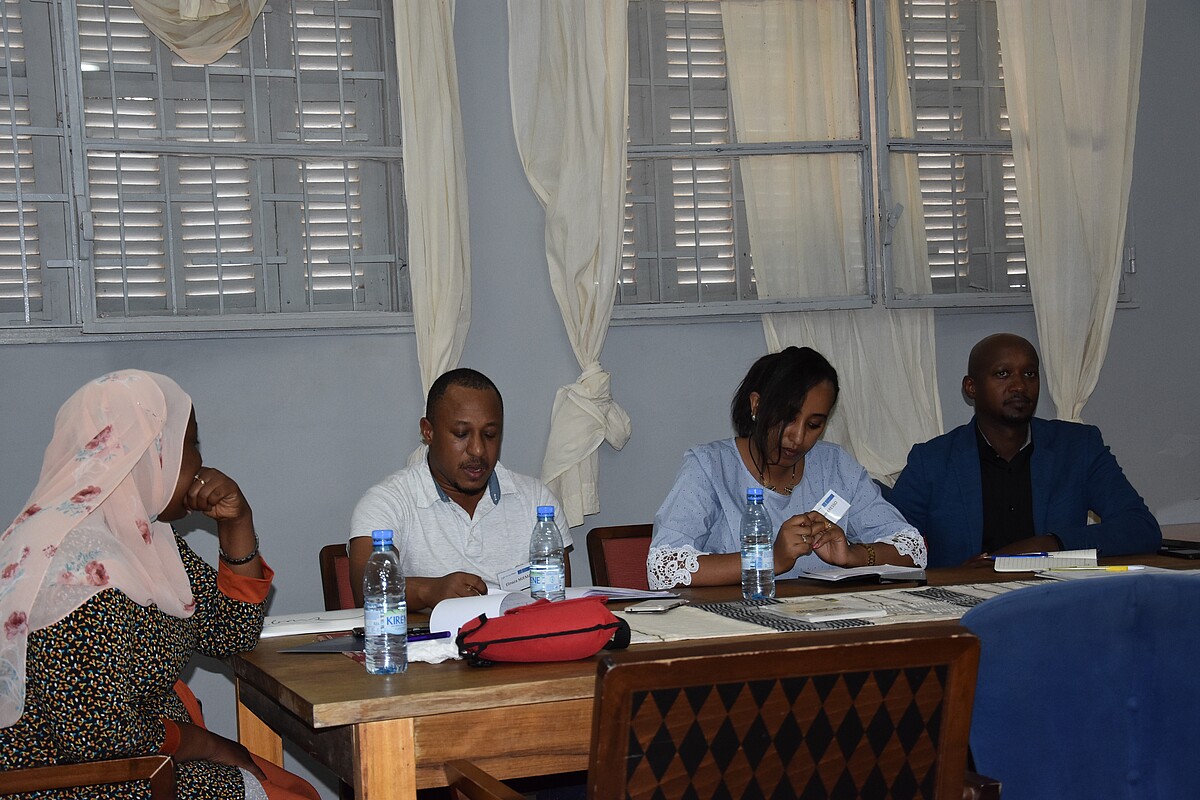 ©
RKT 2019
©
RKT 2019
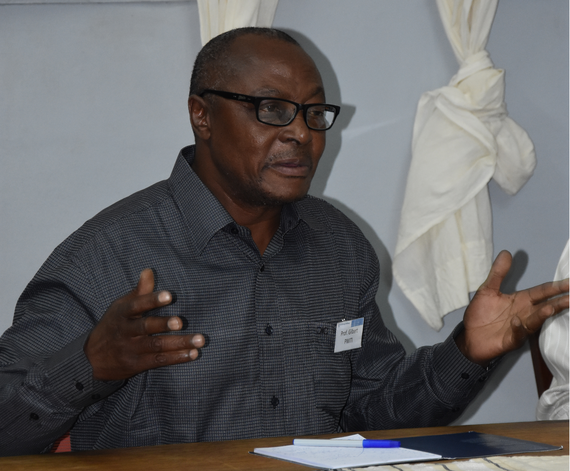
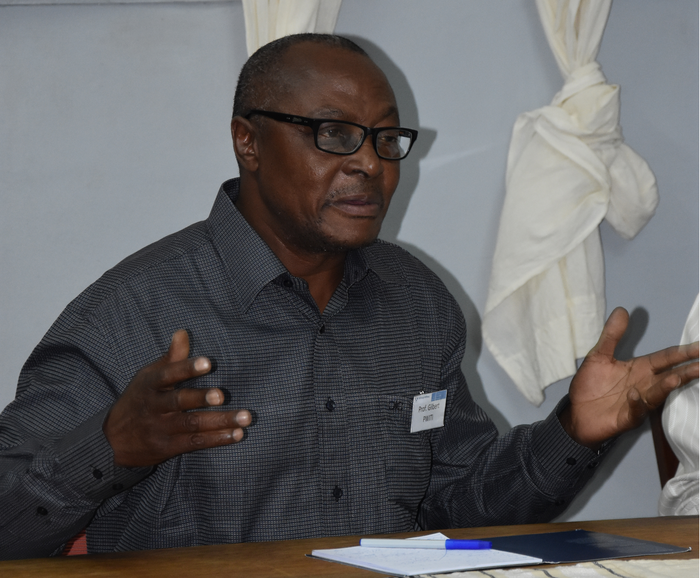
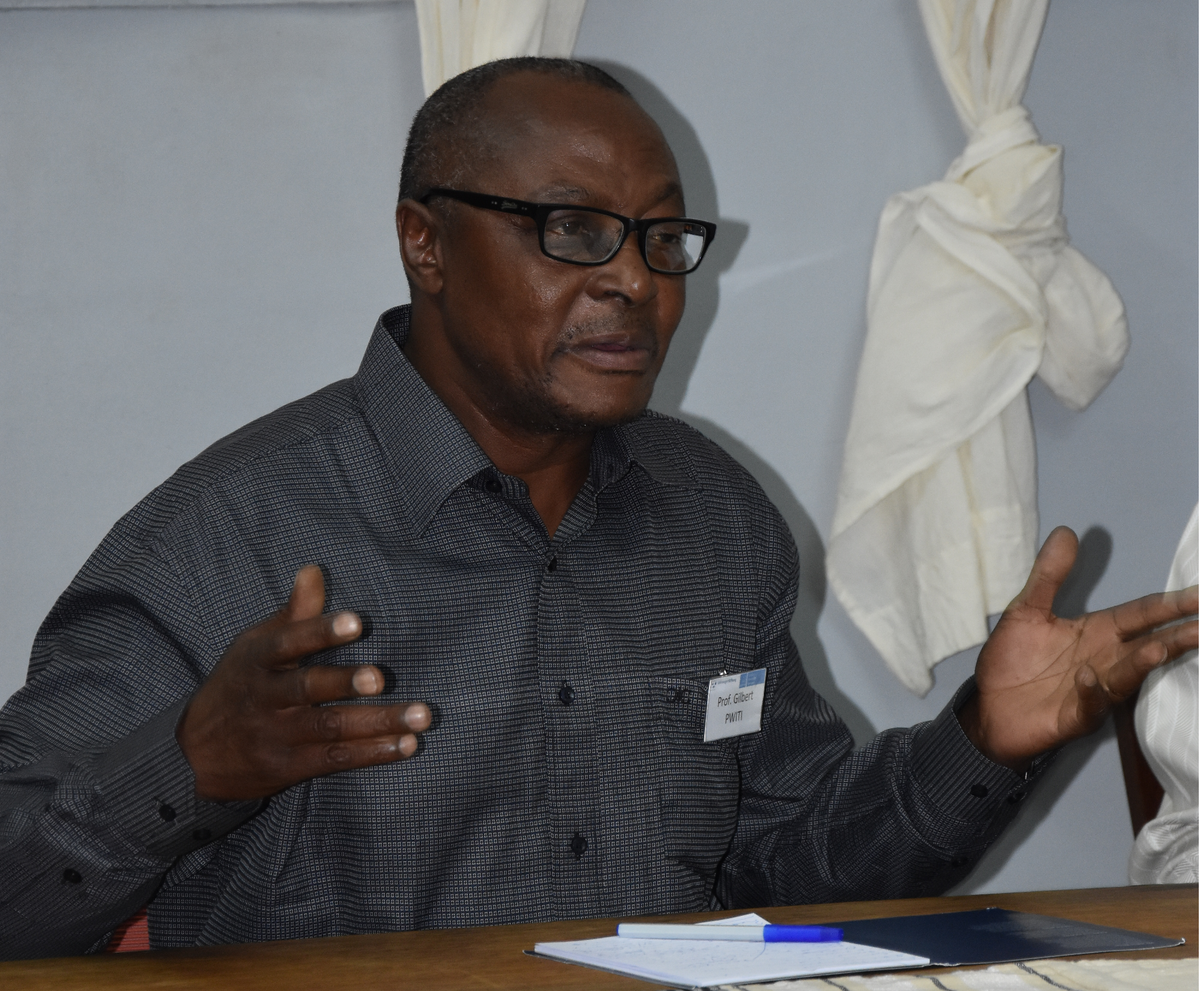 ©
RKT 2019
©
RKT 2019
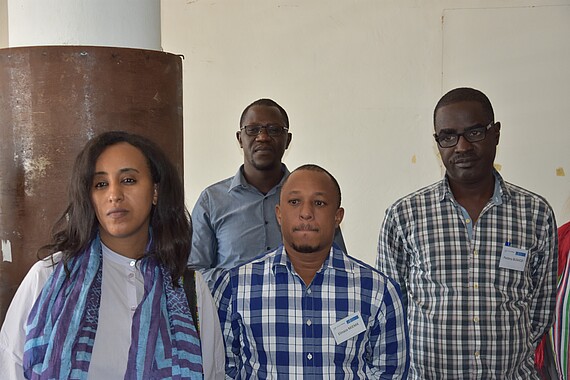
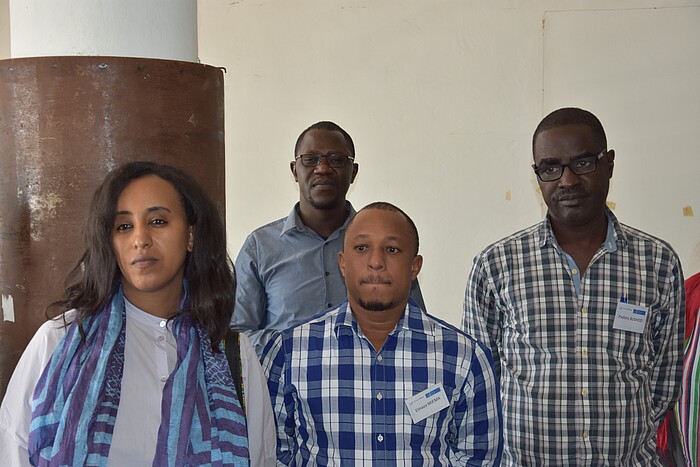
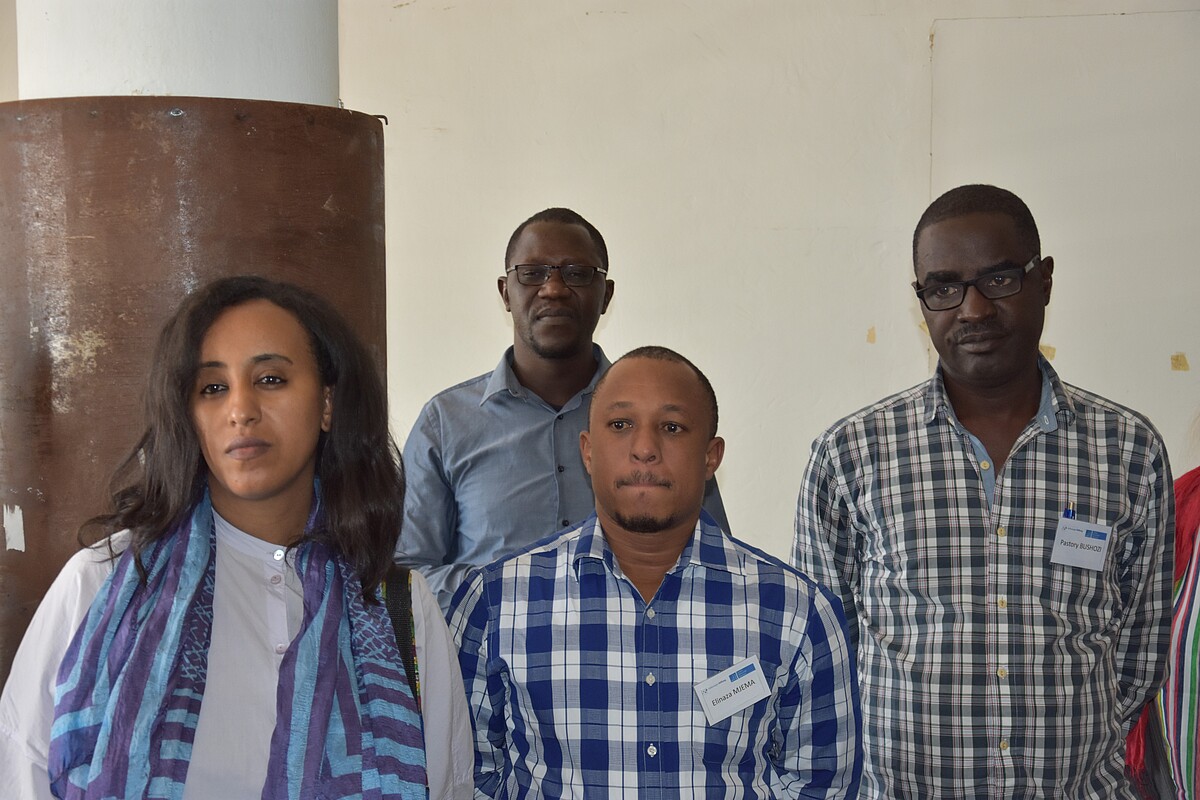 ©
RKT 2019
©
RKT 2019
Cultural Excursion through Saint-Louis
For our cultural excursion our host hired horse-drawn carriages and a guide to lead us through two of the Saint-Louis neighborhoods. The rather touristic Île Saint-Louis, about 70 hectars in size, is an island in the mouth of Senegal river, once was the capital city of Senegal. In 2000 it was declared UNESCO world cultural heritage for its historic quarter with its colonial architecture. A curious building to see is the old mosque which has a bell.
Across a bridge, you can get over to densely populated Guet N’Dar, another quarter of Saint-Louis on another island called Langue de Barbarie. Compared to the rather empty historic neighborhood, Guet N'Dar is overflowing with people and life and commerce. Here live the fishermen and their families, here is also the region's largest fish market and a cemetery. Our guide, himself being from this part of town, explained a lot about the fishers' lives and mentality. His hope is that the many children will get a decent education, especially the girls, in order to positively change their life situation.
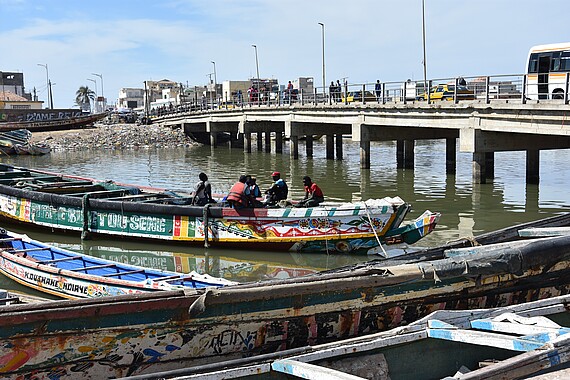
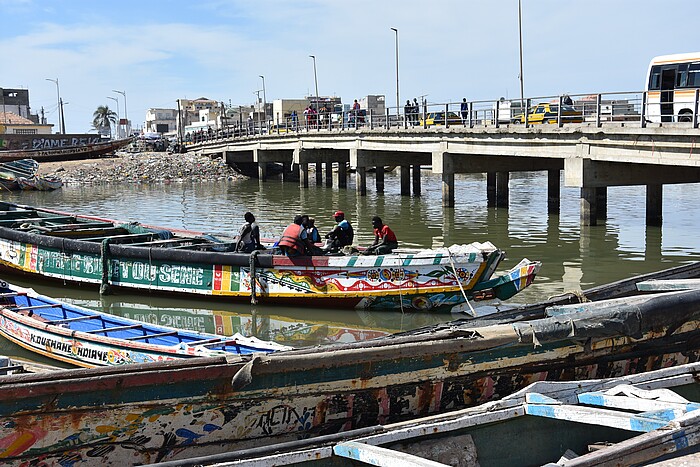
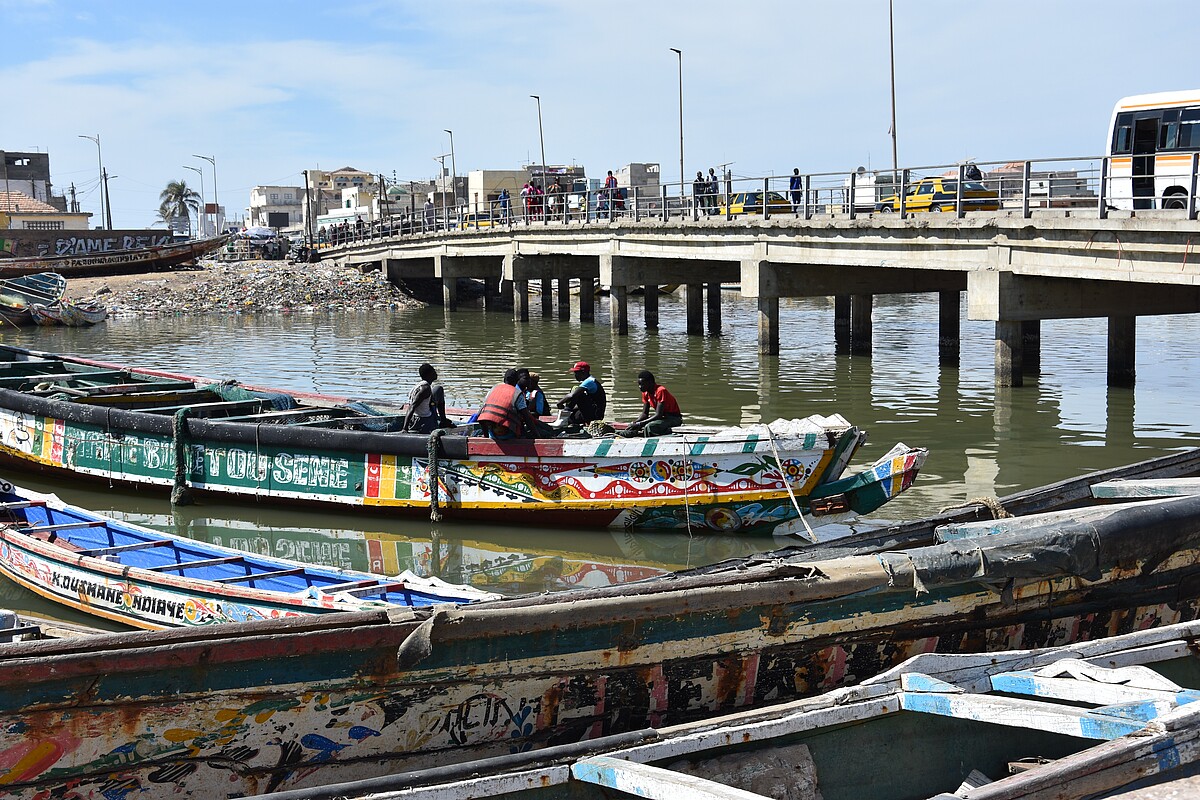 ©
RKT 2019
©
RKT 2019
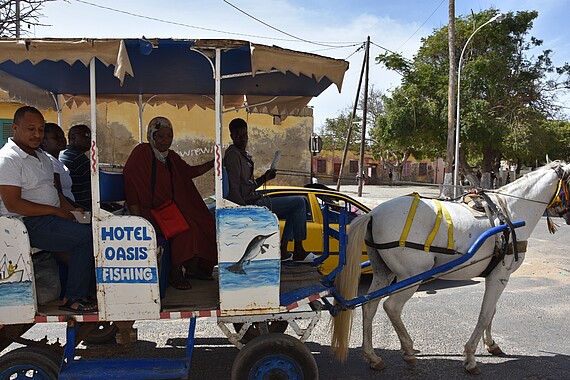
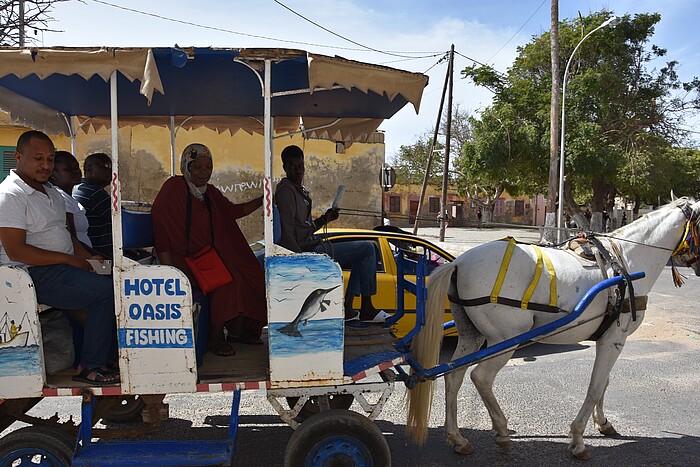
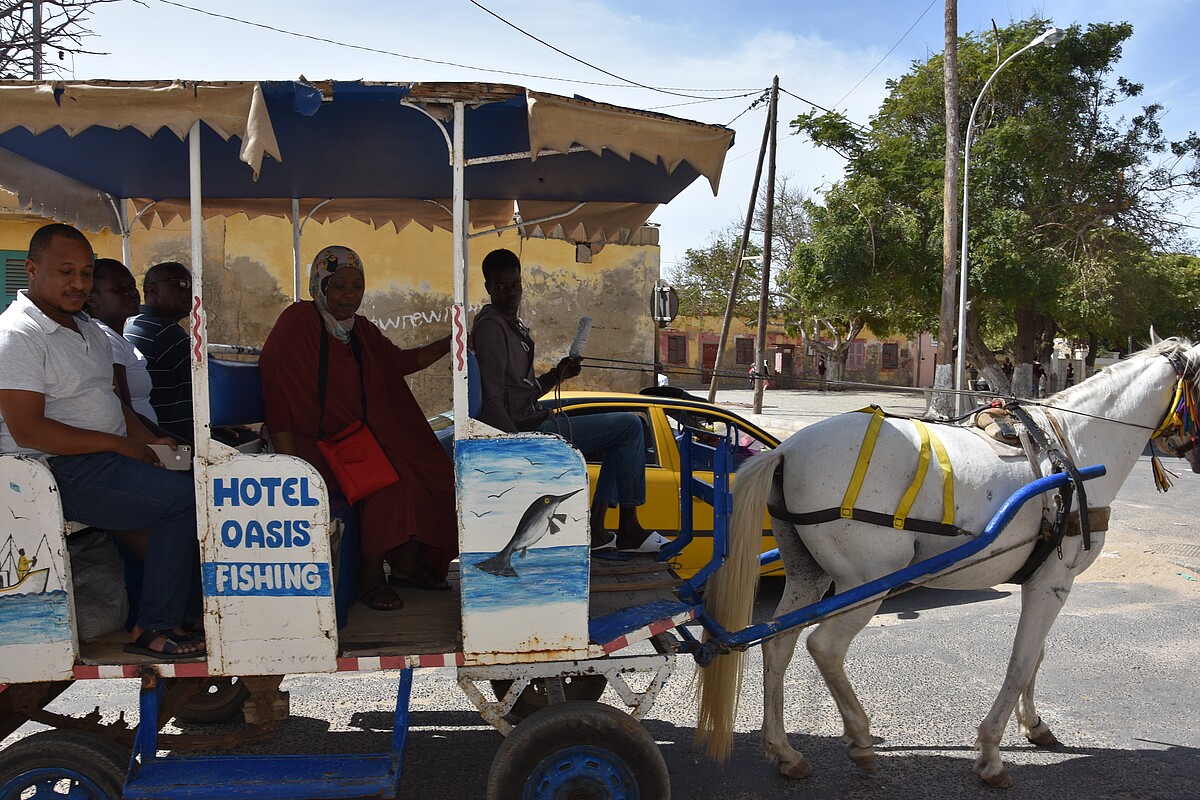 ©
RKT 2019
©
RKT 2019

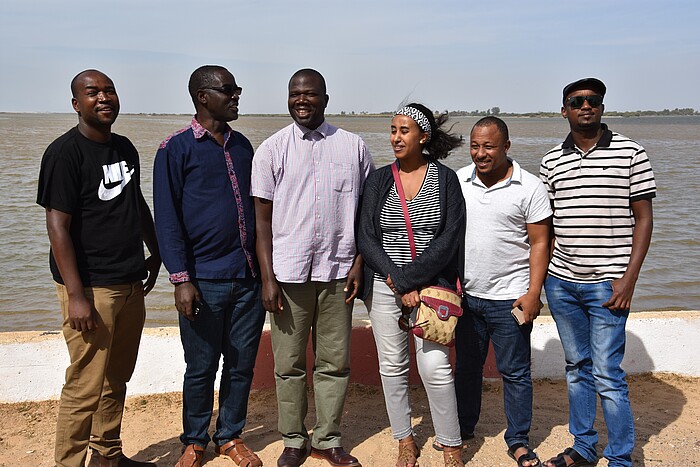
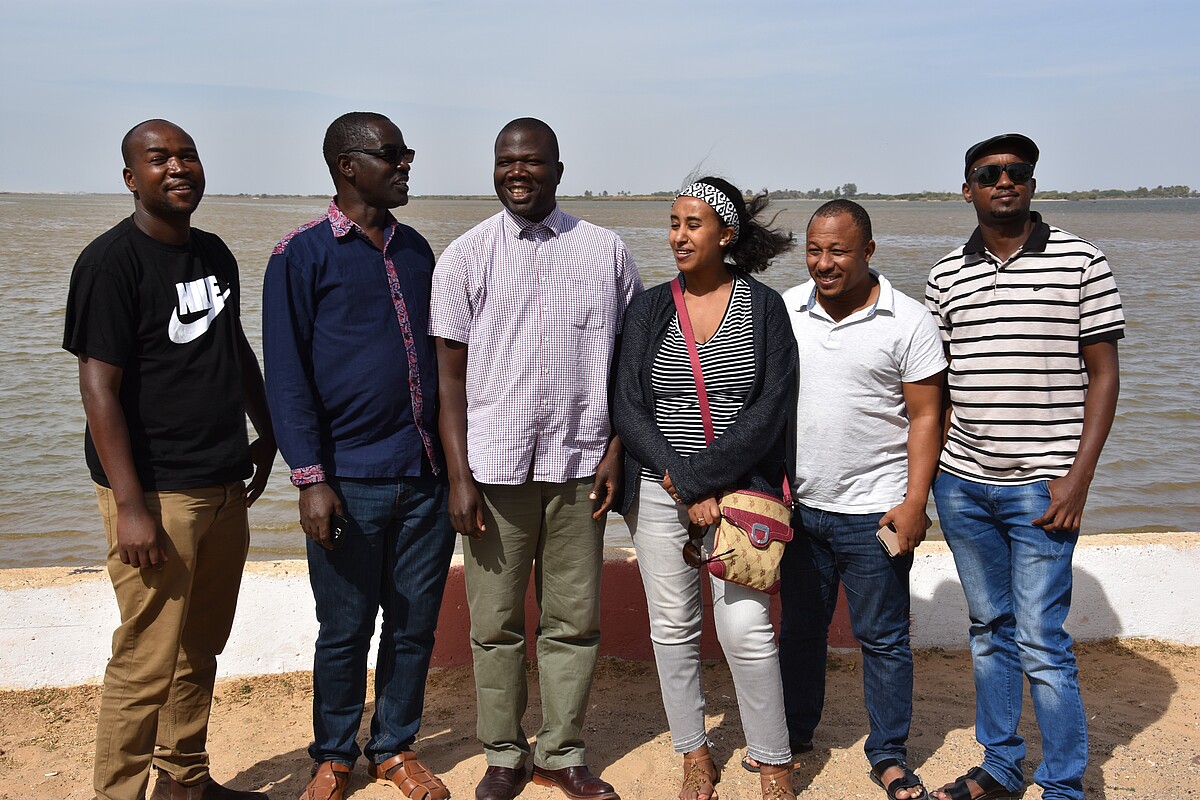 ©
RKT 2019
©
RKT 2019





